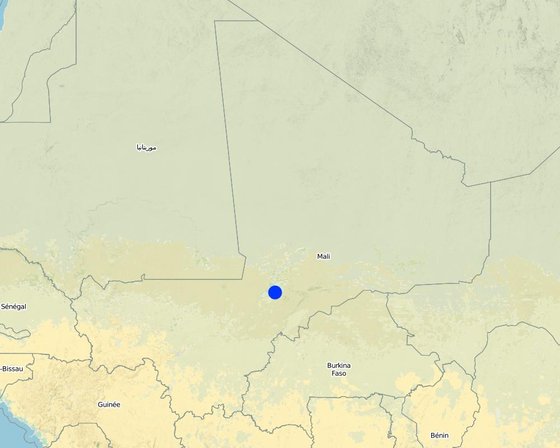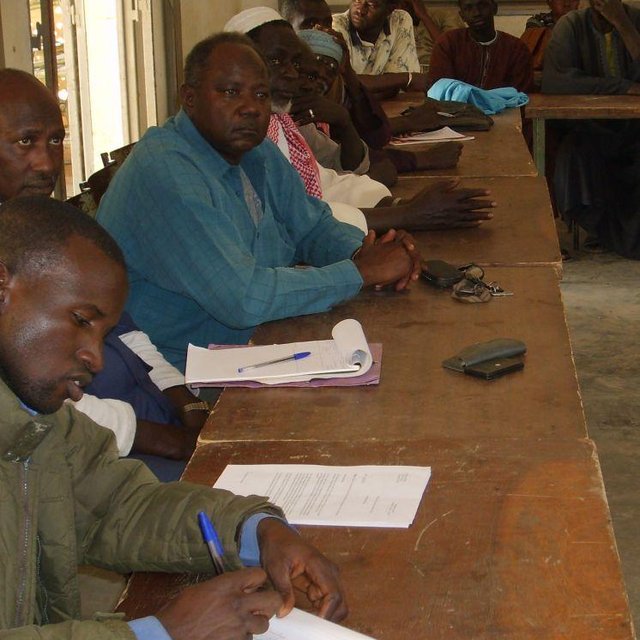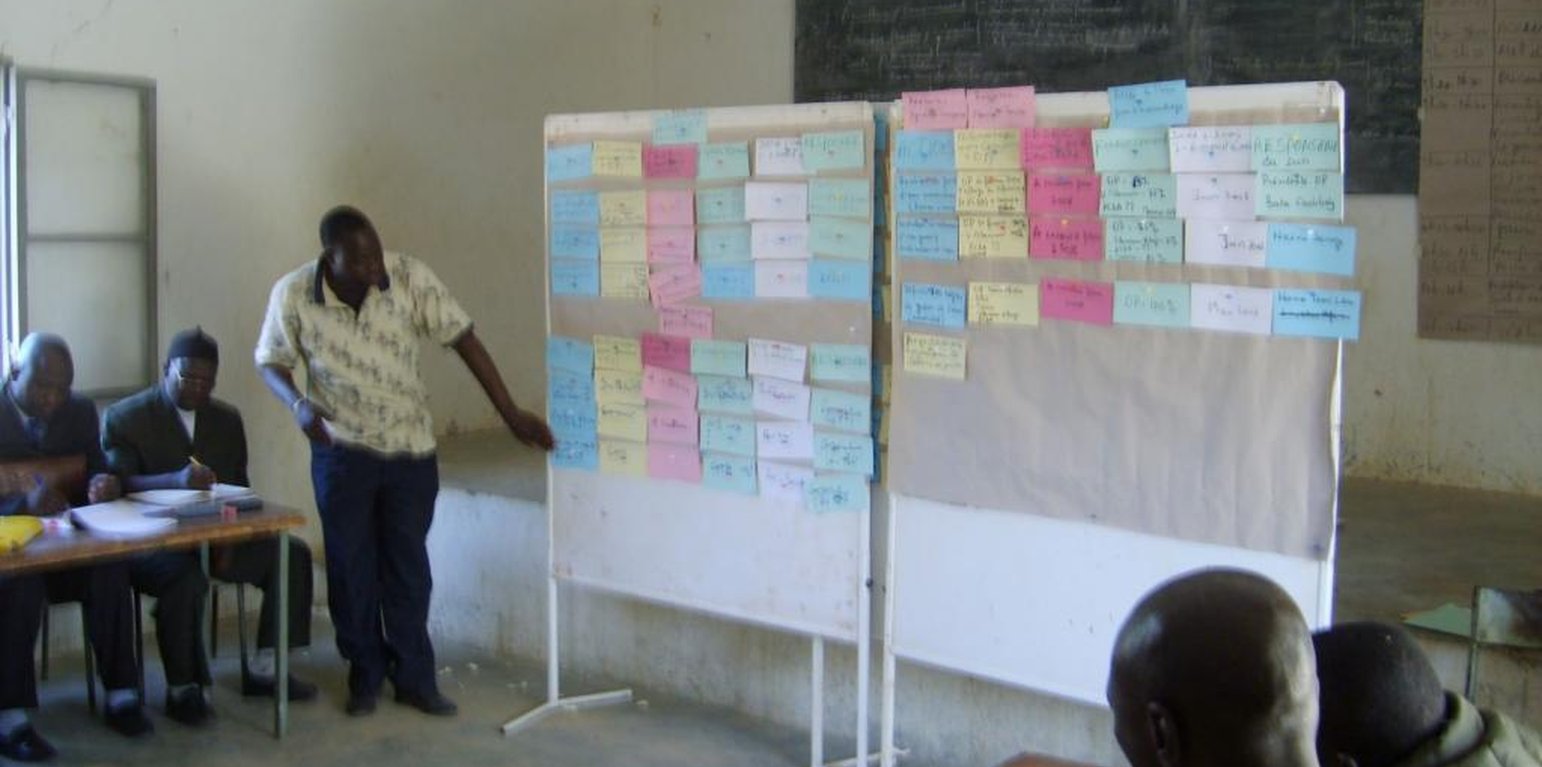Establishment and support of coordination platforms for commune and private sector collaboration
(Mali)
Mise en place et accompagnement des cadres de concertation entre la commune et le secteur prive
Descripción
Facilitate dialogue between commune representatives and sector players in order to direct investments and commune services towards the real needs of professionals.
Consultation frameworks aim to facilitate dialogue between commune representatives and sector players in order to direct investments and commune services towards the real needs of professionals in the sectors in question.
The approach involves instituting a consultation framework for local authority actors and professionals from economic sectors in order to identify these economic actors’ needs vis-à-vis community investments, to factor these needs into local and regional authority planning, and to promote trust and collaboration between actors.
The commune identifies two or three high-growth sectors that are a priority for the commune and also identifies the actors (groups, cooperatives, associations) operating in these sectors. It then puts a consultation framework in place that brings together the municipality, sector actors, local technical services, representatives from technical and funding partners, and NGOs appropriate to or operating in the sectors in question. The decision to establish a framework is made on the back of commune council deliberations. Prior to the first consultation framework meeting, sector professionals identify their needs in terms of investments and measures to improve the business environment. During these periodic meetings, attendees negotiate and agree on priority actions and write these up in a very short-term (three-month) action plan. The consultation framework group then moves to install an inclusive monitoring committee to oversee the implementation of the action plan. The committee’s mandate is defined and evolves in accordance with the results that are achieved over time and with new needs arising. The successive nature of the consultation framework meetings means that progress can be measured, required adjustments made and new activities programmed to move the sectors forward.
PACT provides technical support (methods and tools for work, moderation and training) and contributes financially to consultation workshops. The commune formalises the framework, organises the logistics of meetings (invites, meeting rooms, chair hire, accommodation), contributes to implementing the action plan (registering its designated actions with PDESC, financing), provides incentives (supporting the training of cooperatives; land access; linking up actors; acting as intermediary in negotiations among cooperatives, technical and financial partners and NGOs). Professional organisations mobilise and train their members, cover the costs of their designated activities (radio reports, member travel arrangements, opening accounts, etc.), identify and negotiate within each individual profession the required actions for inclusion in the action plan, and contribute to the cost of building infrastructure. Technical services provide technical support to the two main parties (municipality and professional organisations). The monitoring committee helps ensure the action plan is implemented on schedule, identifies obstacles to implementation and communicates these to consultation framework actors so they can find solutions and move forward with a new action plan.
Lugar

Lugar: regions of Ségou and Koulikoro , Mali , Mali
Georreferencia de sitios seleccionados
Dato de inicio: 2007
Año de conclusión: n.d.
Tipo de Enfoque
-
tradicional/ local
-
iniciativa local reciente/ innovadora
-
proyecto/ basado en un programa

Consultation meeting of actors (PACT)
Metas del Enfoque y entorno facilitador
Propósitos/ objetivos principales del Enfoque
Consultation frameworks aim to facilitate dialogue between commune representatives and sector players in order to direct investments and commune services towards the real needs of professionals in the sectors in question.
The SLM Approach addressed the following problems: lack of dialogue between commune representatives and sector players
Condiciones que facilitan la implementación de la/s Tecnología/s aplicadas bajo el Enfoque
Condiciones que impiden la implementación de la/s Tecnología/s aplicadas bajo el Enfoque
-
Entorno institucional: lack of dialogue between commune representatives and sector players
Treatment through the SLM Approach: instituting a consultation framework for local authority actors and professionals from economic sectors in order to identify economic actors’ needs and to factor these needs into local and regional authority planning, to promote trust and collaboration between actors.
Participación y roles de las partes interesadas involucradas
Partes interesadas involucradas en el Enfoque y sus roles
| ¿Qué partes interesadas/ entidades implementadoras estuvieron involucradas en el Enfoque? |
Especifique las partes interesadas |
Describa los roles de las partes interesadas |
| usuarios locales de tierras/ comunidades locales |
|
|
| especialistas MST/consejeros agrícolas |
|
|
| gobierno local |
|
|
| gobierno nacional (planificadores, autoridades) |
|
|
| organización internacional |
|
|
Involucramiento de los usuarios locales de tierras/ comunidades locales en las distintas fases del Enfoque
ninguno
pasivo
apoyo externo
interactivo
auto-movilización
monitoreo y evaluación
The monitoring committee helps ensure the action plan is implemented on schedule, identifies obstacles to implementation and communicates these to consultation framework actors so they can find solutions and move forward with a new action plan
La toma de decisiones en la selección de Tecnología MST
Las decisiones fueron tomadas por
-
solamente usuarios de tierras (autoiniciativa)
-
principalmente usuarios de tierras con el apoyo de especialistas MST
-
todos los actores relevantes, como parte de un enfoque participativo
-
principalmente por especialistas MST en consulta con usuarios de tierras
-
solo por especialistas MST
-
por políticos/ líderes
La toma de decisiones se basa en
-
la evaluación de conocimiento MST bien documentado (la toma de decisiones se basa en evidencia)
-
hallazgos de investigaciones
-
la experiencia personal y opiniones (no documentadas)
Apoyo técnico, fortalecimiento institucional y gestión del conocimiento
Las siguientes actividades o servicios fueron parte del enfoque
-
Construcción de capacidades / capacitación
-
Servicio de asesoría
-
Fortalecimiento institucional (desarrollo institucional)
-
Monitoreo y evaluación
-
Investigación
Construcción de capacidades/ capacitación
Se proporcionó capacitación a las siguientes partes interesadas
-
usuarios de tierras
-
personal de campo/ consejeros
Forma de capacitación
-
en el contexto de trabajo
-
de agricultor a agricultor
-
áreas de demostración
-
reuniones públicas
-
cursos
Servicio de asesoría
Se proporcionó servicio de asesoría
-
en los campos de los usuarios de tierras
-
en centros permanentes
Name of method used for advisory service: technical support (methods and tools for work, moderation and training), financial contribution
Fortalecimiento institucional
Se fortalecieron/ establecieron instituciones
-
no
-
sí, un poco
-
sí, moderadamente
-
sí, mucho
Describa la institución, los roles y las responsabilidades, miembros, etc.
Tipo de apoyo
-
financiero
-
construcción de capacidades/ entrenamiento
-
equipo
Detalles adicionales
Monitoreo y evaluación
socio-cultural aspects were ad hoc monitored by project staff, land users through observations
economic / production aspects were regular monitored by project staff, land users through measurements
management of Approach aspects were ad hoc monitored by project staff through observations
There were no changes in the Approach as a result of monitoring and evaluation
There were no changes in the Technology as a result of monitoring and evaluation
Investigación
La investigación trató los siguientes temas
-
sociología
-
economía/ marketing
-
ecología
-
tecnología
Financiamiento y apoyo material externo
Presupuesto anual en dólares americanos para el componente MST
-
< 2,000
-
2,000-10,000
-
10,000-100,000
-
100,000-1,000,000
-
> 1,000,000
Precise annual budget: n.d.
Approach costs were met by the following donors: international: 100.0%
Los siguientes servicios o incentivos fueron proporcionados a los usuarios de las tierras
-
Apoyo financiero/material proporcionado a los usuarios de tierras
-
Subsidios para insumos específicos
-
Crédito
-
Otros incentivos o instrumentos
Apoyo financiero/material proporcionado a los usuarios de tierras
The beneficiaries (municipality and professional organisations) contribute to covering the costs involved. It is a win-win process for the municipality and professional organisations and the costs involved are low. Progress can potentially be restricted by the low-levels of resources that both the territorial communities (rural communes) and local economic actors can invest in infrastructure and the fact that PACT cannot make capital investments. This lack of investment can sap the desire of actors to continue with the consultation process.
parcialmente financiado
totalmente financiado
equipo: maquinaria: herramientas
El trabajo de los usuarios de las tierras fue
-
voluntario?
-
comida por trabajo?
-
pagado en efectivo?
-
recompensado con otro tipo de apoyo material?
Análisis de impacto y comentarios de conclusión
Impactos del Enfoque
No
Sí, un poco
Sí, moderadamente
Sí, mucho
¿El Enfoque ayudó a los usuarios de tierras a implementar y mantener Tecnologías MST?
consultation framework brings together the municipality, sector actors, local technical services, representatives from technical and funding partners, and NGOs; Commune water-use planning that takes into account commercial (e.g., small-scale irrigation schemes) as well as drinking water purposes
¿El Enfoque empoderó a grupos en desventaja social y económica?
Did other land users / projects adopt the Approach?
Ségou Region: Ségou Circle (communes of Dioro, Sansanding, Togou, Markala and Farakou Massa) and Macina Circle (communes of Boky-Wèrè, Kokry, Souleye, Saloba and Kolongo)
Implementation locations: Koulikoro Region: Koulikoro Circle (communes of Sirakorala, Koula Togouni, Nyamina and Doumba) and Kati Circle (communes of Ouélessébougou, Dialakoroba, Sanankoroba, Dio-Gare and Yélékébougou).
The approach has been applied in 20 communes in two regions and four circles. On average, each commune has two cooperatives, which are professional organisations representing between 60 and 120 members.
Motivación principal del usuario de la tierra para implementar MST
-
producción incrementada
-
incremento de la renta(bilidad), proporción mejorada de costo-beneficio
-
reducción de la degradación de la tierra
-
reducción del riesgo de desastres naturales
-
carga de trabajo reducida
-
pagos/ subsidios
-
reglas y reglamentos (multas)/ aplicación
-
prestigio, presión social/ cohesión social
-
afiliación al movimiento/ proyecto/ grupo/ redes
-
conciencia medioambiental
-
costumbres y creencias, moral
-
conocimiento y capacidades mejorados de MST
-
mejoramiento estético
-
mitigación de conflicto
Sostenibilidad de las actividades del Enfoque
¿Pueden los usuarios de tierras sostener lo que se implementó mediante el Enfoque (sin apoyo externo)?
Conclusiones y lecciones aprendidas
Fortalezas: perspectiva del usuario de tierras
Fortalezas: punto de vista del compilador o de otra persona recurso clave
-
The beneficiaries (municipality and professional organisations) contribute to covering the costs involved. It is a win-win process for the municipality and professional organisations and the costs involved are low.
-
Formalisation of professional organisations and steering of these towards economic goals. Increased awareness in the municipality of the need to include economic factors in planning
-
Commune water-use planning that takes into account commercial (e.g., small-scale irrigation schemes) as well as drinking water purposes
-
collaborative relationship between the municipality and private sector (better mutual understanding of local authority and professional sector actors)
-
embedding of community structural investments in community planning
-
Greater willingness to pay taxes
-
creation of new funding streams for local authorities
-
empowerment of private sector actors in terms of investments
-
Improved basic community services for actors operating in sectors related to small-scale irrigation
-
Joint identification of needs (investments and capacity building of actors).
Debilidades/ desventajas/ riesgos: perspectiva del usuario de tierrascómo sobreponerse
Debilidades/ desventajas/ riesgos: punto de vista del compilador o de otra persona recurso clavecómo sobreponerse
-
Progress can potentially be restricted by the low-levels of resources that both the territorial communities (rural communes) and local economic actors can invest in infrastructure and the fact that PACT cannot make capital investments. This lack of investment can sap the desire of actors to continue with the consultation process.
Referencias
Fecha de la implementación: 24 de septiembre de 2014
Últimas actualización: 20 de junio de 2017
Personas de referencia
-
Dieter Nill (dieter.nill@giz.de) - Especialista MST
-
Dieneba Cisse (dieneba.cisse@giz-pact.org) - Especialista MST
Descripción completa en la base de datos de WOCAT
La documentación fue facilitada por
Institución
- Deutsche Gesellschaft für Internationale Zusammenarbeit (GIZ) GmbH (GIZ) - Alemania
Proyecto
- Programme for Territorial Communities, Mali (PACT)
Referencias claves
-
Manual of Good Practices in Small Scale Irrigation in the Sahel. Experiences from Mali. Published by GIZ in 2014.: http://star-www.giz.de/starweb/giz/pub/servlet.starweb





